By Zoe Gilchrist
The refugee crisis headlined the news all of last summer. I read article after article describing the conditions and the difficulties that refugees were facing in their attempt to escape war and/ or search for the opportunity of a better life. After reading all of this, I decided it was time for me to do something.
In the middle of December I arrived in Idomeni, Greece with very little knowledge of what to expect or what was occurring on the first official border crossing for refugees arriving on the islands of Greece. This is the beginning of the so called Balkan Route, the point at which refugees begin their journey through the Balkan countries and up to Austria, Germany or other Western European countries.
Idomeni camp is located right on the Macadonian- Greek border and is the initial checking point for whether refugees are allowed to continue north or not. Refugees mostly arrive by bus (a small number in taxis) from the Athens port of Piraeus or from the port of Kavala where all boats from the islands arrive. Once in the camp the buses are unloaded and groups are directed through a metal corridor to pick up food, blankets and water, before being allowed into large Rubb hall tents.
After a small rest the group is then directed towards the border, and allowed to continue through a small gate in the 12 foot, 20km long fence ‘protected’ by roles of razor wire. Those rejected turn around, lost hope deflating their posture, to return by bus to Athens either for deportation or to begin the Greek asylum process.
Well, this is how the camp is supposed to work. However, in the two months that I have been here continuous complications and changes to the system have meant that it rarely works in this way.
When I arrived in December, one week after Idomeni was violently evicted, the whole camp was still in shut-down, and it stayed that way until mid- January. Heated tents sat empty, doctors’ offices not accessible and refugees stuck on freezing buses, not allowed to get off until it was their turn in line. Sometimes buses would be parked just outside the camp for up to 9 hours waiting their turn.
These long waits were mostly caused by temporary closures on the Macedonian side of the border, often due to factors such as the Gevgelija camp being full, trains not leaving, taxis striking (and therefore parked on the train tracks) or push-backs coming through in the opposite direction.
Once people were finally let off their buses, the Greek police structured them into a line and rushed them down towards the border. In the 100m walk food, blankets, hats, gloves and jackets were quickly handed over and then they were gone. By this point most people had been travelling nearly non-stop for 5 days since Turkey, no chance to rest or gather their emotions before being hurried along towards the next leg. The camp remained in this state for a number of weeks, with people passing continuously throughout the day and night.
There is however another part to journey that is rarely ever publicized or hidden from the media.
About 20km away from the border lies the infamous EKO gas station.
Here buses would be forced to wait before it was their turn at camp, sometimes buses were kept here for up to 48 hours. At this point there is no food distribution, no warm clothes available, a mere 4 tents with a capacity of 35 people each, and not enough blankets to go around.
The date that remains in my mind is the 3rd of January 2016. Temperatures were low, wind was high and the snow was coming in sideways. Seventy buses (about 4000 people) were haphazardly parked in the gas station parking lot and people swarmed around them confused and unable to remain warm. Many of the drivers decided it was too cold for themselves to remain on the buses so got out, removed everyone and went to spend the night in a warm hotel, leaving passengers outside and exposed to the elements. At one point I came across a small family, one month old baby and all, looking like a group of grey rocks huddled up in UNHCR blankets.
All I had to offer were thin plastic ponchos. The mother turned to me and then pointed at her baby. ‘Doctor’ she said, her face a cry for help. There was no doctor, no support.
When camp finally reopened people were allowed into the warm tents, and given a chance to rest. However, the situation at the EKO remained and people were still forced to wait for days without proper attention or knowledge of what was occurring. Only 1200 people can be in the camp at once and there are days when up to 4500 people arrive. A collective kitchen (Aid Delivery Mission) began operating down at the gas station, cooking for up to 5000 people, providing often the only warm nutritious food that people would get each day. (Recently, escalated efforts have resulted in food provision for 8000).
Everyone tried their best to support but it was hard to reach everyone and the most vulnerable (pregnant women, the sick, disabled) would often be missed.
Smugglers also started to operate in the gas station, telling people to hand over their papers and pay for transit to the border. Bus drivers also got in on the game and would demand 30 euros per person for the bus to skip to the front of the queue. Many buses that refused or couldn’t pay would be stuck at the gas station for longer, their turn skipped. Luckily most people from here would make it to camp eventually and be able to continue their journey. There are however the ‘illegal’ refugees or migrants who are forbidden from continuing their journey.
If you’re not from Syria, Iraq or Afghanistan (SIA) there is no way you can get through the tough border controls. This has led to people trying to find alternative ways to cross into Europe. In the forest located 5km away from Idomeni smugglers ask for extortionate prices to get people across the border. One Iranian man with whom I’d spoken had paid $800 to get across with 200 others, only to be caught by the Macedonian army 3km across the border. He was lucky though – although he was sent back, no beating had occurred at the hands of the army or police.
Many of the non-SIA people who try to cross illegally are not so lucky; they are subject to excessive amounts of violence. Over the last couple months I have seen multiple broken legs, dislocated shoulders, purple eyes and bloody ears or noses, all of which I have been told come from the Macedonian army or police (for more information see this report by Human Rights Watch).
We work to support those living in the forest attempting or preparing for their journey to Macedonia. We provide food, clothes, sleeping bags, information and solidarity from the Greek side. Many people have no idea of the difficult journey they are about to embark on, which is over 200 km and either very mountainous or overly exposed. Most individuals are very ill-equipped to make such a journey. Some wear broken shoes or flip-flops, and most have no sleeping bags, carrying only a small backpack with some tinned food and bottled water. We give them what we can, but it’s never enough.
There is a small amount of support on the other side of the border and along the way. Every 30km, there is a small plastic box that volunteers in Macedonia fill up daily with food, medical supplies, socks and information but not everyone can be provided for and not everyone takes the route laid out by the boxes. Furthermore it is illegal to support illegalized people in Macedonia and locals can be subject to anywhere from 6 months to 2 years in prison for giving food.
To make matters worse, the police and army locate themselves along the major routes and at bridge crossings, catching, returning and often beating those making the journey. But people don’t stop trying. This is, in their eyes, their ‘only chance’ to find a better life.
There is so much to describe of the situation at Idomeni, that I have only given a small overview. Things are changing all the time. NATO as of recently has begun stopping boats in the Aegean Sea, as is the Turkish coast guard (with water cannons and circling them with speed boats, a dangerous practice which could easily result in small inflatable boats capsizing). New ‘relocation camps’ are opening up, as are ‘hot spots’. NGOs are not allowed to access these areas, and on a trip we recently made armed police prevented us from getting anywhere near the Sindos Relocation centre, blocking off over 1.5km of the road around the army run camp.
Those of us supporting from the border can only do so much, we are at the mercy of bureaucracy and EU decisions. What do we say to refugees when they ask ‘Okay now?’, ‘Germany, Austria good?’, I don’t know, maybe, maybe you will get all the way through, find asylum and a new life but maybe you will be sent
all the way back again. But often you won’t find hospitality. Reports of Denmark taking jewellery, Neo-Nazi Germans stopping buses, months of waiting for registration, accusations of false identity, deportation of minors in the UK and borders becoming even more likely to close don’t make a difficult situation any easier.
Even if you are from Syria, Afghanistan or Iraq it’s not guaranteed you will be allowed to stay. One slip up in your papers could result in a return ticket to a place that is now too destroyed to be called a home.
Who knows what will come next, but it doesn’t look so positive at the moment. Just please don’t forget a refugee is first and foremost a human.
===========================================================================
Zoe Gilchrist is second-year Geography/ International Development student currently on an intermission year from Sussex. She is currently in Idomeni, Greece volunteering with the solidarity action kitchen Aid Delivery Mission. She has written the following account of her experiences there.


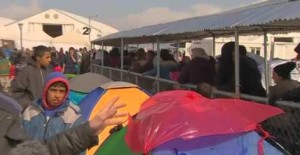
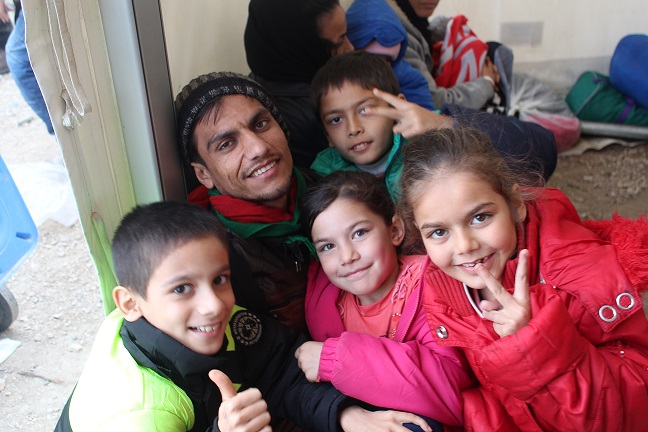
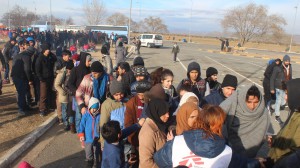
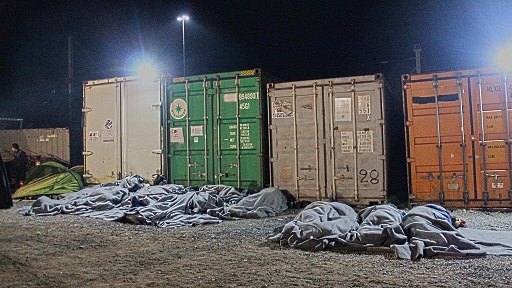
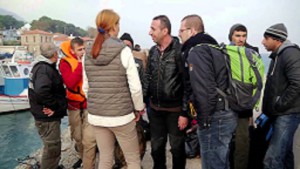
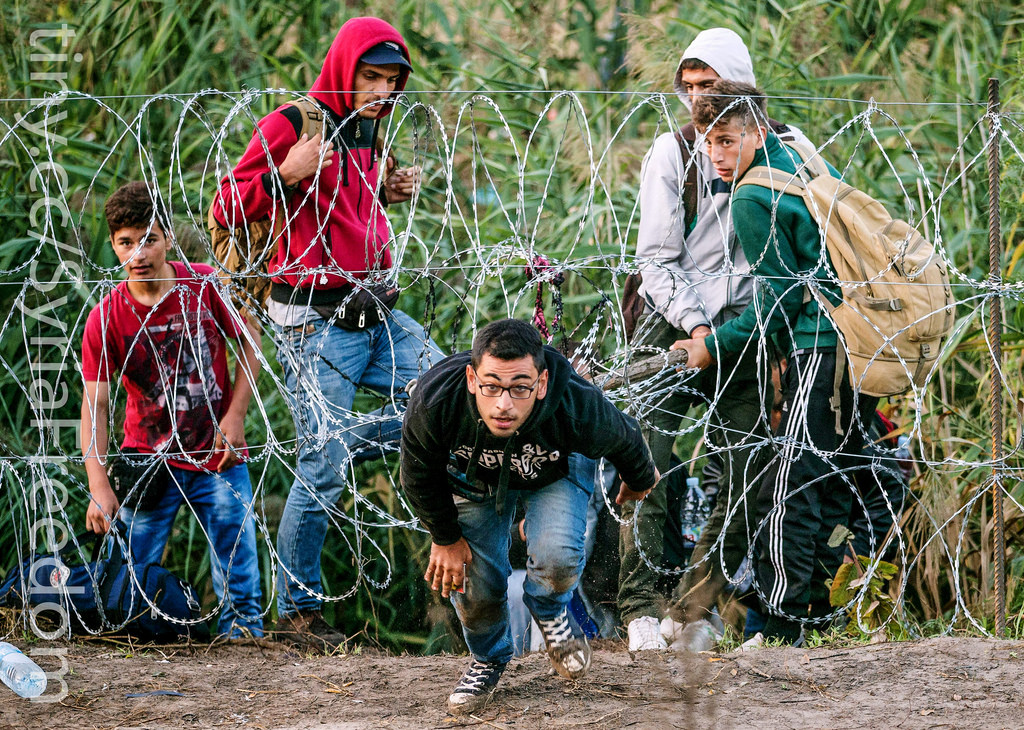
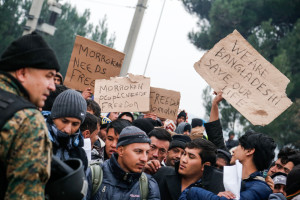
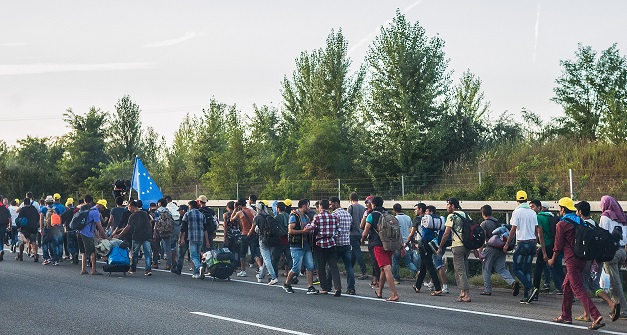
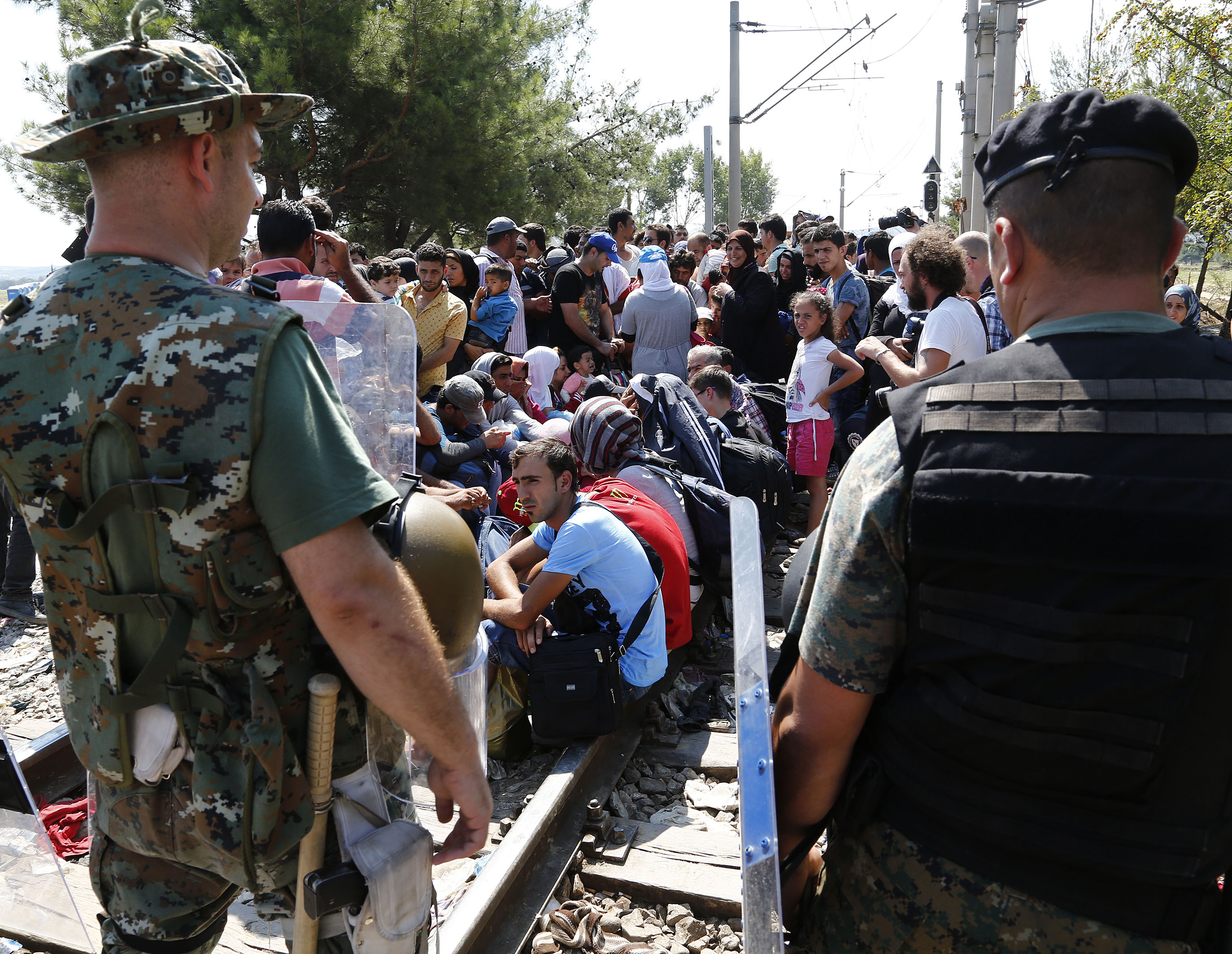
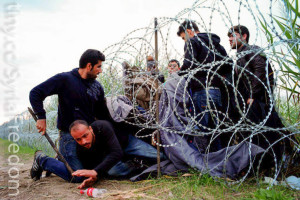
Leave a Reply